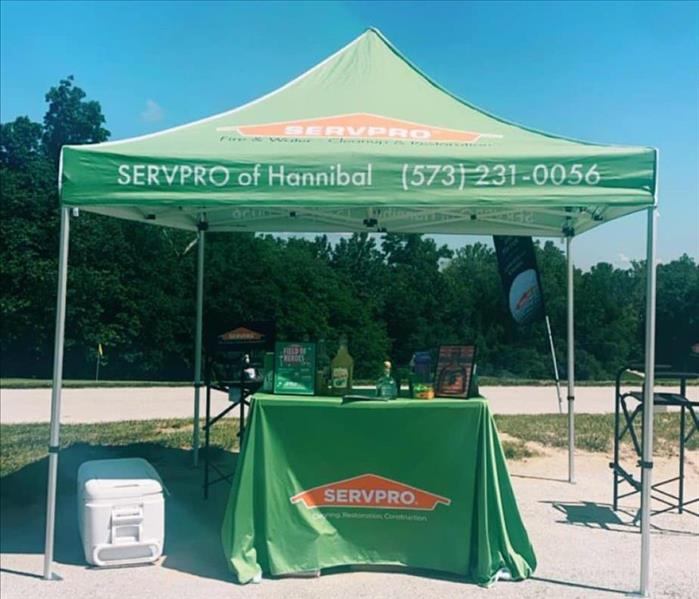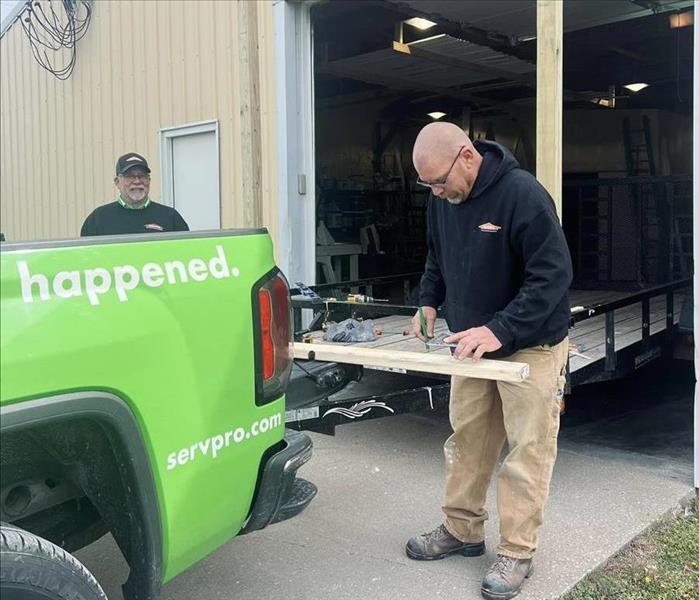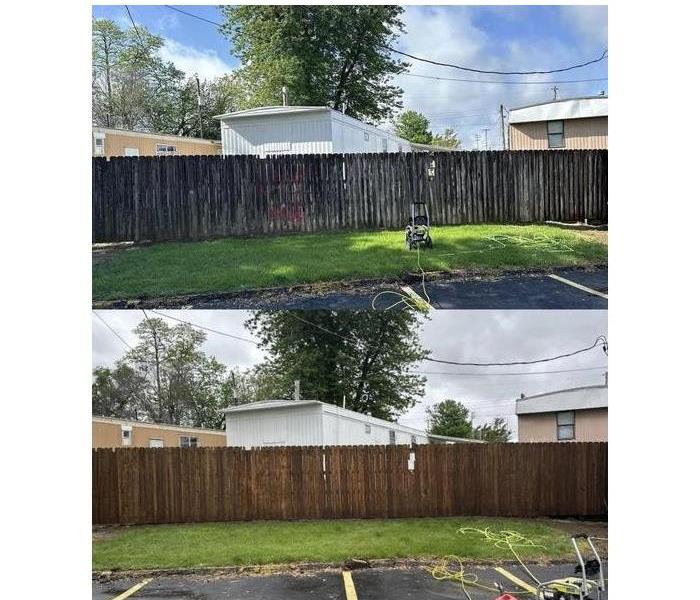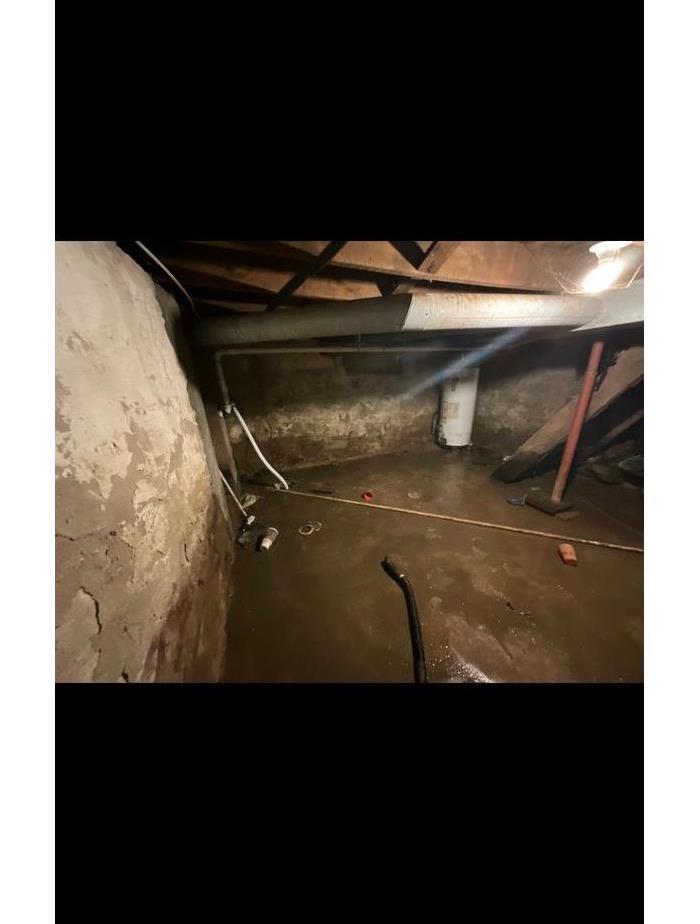Recent Posts
Fire Safety During The Holidays
11/25/2024 (Permalink)
At SERVPRO of Hannibal, we understand Fire safety. Fire safety is especially important during the holiday season when decorations, candles, and cooking can increase the risk of fires. Here are some tips to help keep you and your loved ones safe:
Decorating Safety
Choose flame-resistant decorations: Look for decorations that are labeled as flame-resistant or flame-retardant.
Keep decorations away from heat sources: Ensure that decorations are not placed near fireplaces, radiators, or other heat sources.
Use lights safely: Check holiday lights for frayed wires or broken bulbs. Use lights that are certified by a recognized testing laboratory.
Turn off lights when not in use: Always turn off holiday lights before leaving home or going to bed.
Candle Safety
Use battery-operated candles: Consider using flameless candles to reduce the risk of fire.
Keep candles away from flammable items: Ensure that candles are placed away from decorations, curtains, and other flammable items.
Never leave candles unattended: Always extinguish candles before leaving the room or going to bed.
Cooking Safety
Stay in the kitchen: Never leave cooking food unattended. If you need to leave the kitchen, turn off the stove.
Keep flammable items away from the stove: Ensure that oven mitts, wooden utensils, and other flammable items are kept away from the stove.
Use a timer: Set a timer to remind you when food is done cooking.
Christmas Tree Safety
Choose a fresh tree: If you have a real tree, make sure it is fresh and well-watered to prevent it from drying out and becoming a fire hazard.
Keep the tree away from heat sources: Place the tree away from fireplaces, radiators, and other heat sources.
Use appropriate lights: Only use lights that are rated for indoor use and avoid overloading electrical outlets.
General Safety
Install smoke alarms: Ensure that smoke alarms are installed on every level of your home and test them regularly.
Have a fire extinguisher: Keep a fire extinguisher in an easily accessible location and know how to use it.
Create an escape plan: Develop and practice a fire escape plan with your family.
By following these tips, you can help ensure a safe and happy holiday season.
Call SERVPRO of Hannibal today to make Fire Damage, "Like it Never Even Happened".
Winterizing Water Spigots
11/25/2024 (Permalink)
We've been spoiled with amazing weather this fall! However, it's definitely getting colder as December quickly approaches! Are YOU Prepared?
Winterizing your outdoor spigots is essential to prevent them from freezing and potentially causing damage to your plumbing. Here are some steps to help you winterize your outdoor spigots:
Steps to Winterize Outdoor Spigots
Turn Off the Water Supply: Locate the shut-off valve for your outdoor spigots, usually found inside your home, near the spigot. Turn off the water supply to the spigot by turning the valve clockwise.
Disconnect Hoses: Remove any garden hoses attached to the spigot. Leaving hoses connected can trap water in the spigot and cause it to freeze.
Drain the Spigot: Open the spigot to allow any remaining water to drain out. This helps prevent any water from freezing inside the spigot.
Drain the Inside Shut-Off Valve: If your shut-off valve has a drain plug, open it to let any remaining water inside the pipe drain out. Place a bucket underneath to catch the water.
Insulate the Spigot: Use an insulated cover or foam sleeve to protect the spigot from freezing temperatures. Make sure the insulation covers the entire length of the spigot.
Install a Frost-Free Spigot: Consider installing a frost-free spigot, which is designed to prevent freezing by draining water away from the spigot when it is turned off.
By following these steps, you can help ensure your outdoor spigots are protected from freezing temperatures and avoid costly repairs. Make sure to winterize your home or business to ensure you are free of water damage. Contact SERVPRO of Hannibal for more information.
Construction
7/8/2024 (Permalink)
There is no job to big or too small for our construction team. They love doing what they do, and helping all customers.
Here you will see them building SERVPRO's dogwood parade float.
These are just some of the smaller side projects they will do in their little free time they get.
SUPER SUIT
6/17/2024 (Permalink)
Incase you didn't catch us at the Dogwood parade, we have a storm trooper too!
If you ever see him out and about, stop and grab your picture with him!
Graffiti removal
6/10/2024 (Permalink)
Check out this picture of before and after. SERVPRO of Hannibal will clean anything!
The owner threw on his boots and started power washing their fence and brick building to get all the graffiti off, as they requested.
He was able to get it 100% and make it look "Like it never even happened”.
Golf Season
5/20/2024 (Permalink)
 We cant be missed under our big green tent!
We cant be missed under our big green tent!
Golf season has arrived and SERVPRO of Hannibal has been out and about in the community to serve up our famous margaritas! Look for the big green tent with your favorite marketing reps under it.
We love this tool to network with our community leaders and meet new people and see familiar faces.
SERVING OUR COMMUNITY SINCE THEY SERVE US
5/20/2024 (Permalink)
SERVPRO of Hannibal works Closely with our first responders daily. Any support we can show back, we love to do for them. The whole month of May is dedicated to first responders. The 2nd week was specifically dedicated to police. We went around to our local police offices and donate pizzas to them for lunch! They love food the SERVPRO delivers to them!
Storms bring in Water Damage to local commercial property
5/20/2024 (Permalink)
The local storms bring in water damage to local business across our territory. We have jumped on the jobs to meet our customers needs and wants. When disaster strikes SERVPRO of Hannibal Has your backs. We are always Here to Help!
The rain that rolled in also brought in wet basements, floors, and walls.
We will come set equipment and dry out the room, floor and walls. What cant be dry in the walls, we will flood cut the walls to help dry. Once dry, we will clean everything and put everything back, like it never even happened.
READY.SET.HUT!!
5/20/2024 (Permalink)

Have YOU heard about our First Responders Charity Flag Football Game?! Here's a few details to know:100% of the proceeds will go to charity!This event will be a series of Flag Football Games, in which the final two teams will have the chance to WIN all of the proceeds for their charity of choice!The games will be played by Local First Responders!! Shoutout to Quincy Police Department, Adams County Sheriff’s Office, Quincy Fire Department, Hannibal Fire Department, Hannibal Police Department and Marion County Sheriff's Office for helping us plan this event!There will be a pre-game to kick-off the day played by Special Olympics Illinois - Region H!!! We are SO excited for SOIL to join us!These delicious food/drink trucks will be joining us: JKW BBQ, Nice ‘N Chill Grill, 8te Open, CC’s Coffee Bar !!!What else?We are looking for EVENT SPONSORS. If your business is interested, please please sign up!! All of these proceeds go to charity, and you can join us that day with a table to promote your business!!We are NOW accepting donations for the Silent Auction.We will also need volunteers the day, and would really appreciate any sign up we can get!We are open to welcome more food/drink trucks! Please reach out if you're interested!Players, Sponsors and Volunteers can all use this same link to sign up: https://www.signupgenius.com/.../10C0C44A9A62EA1FCC70...Please note: Player fees will NOT be paid through Sign-Up Genius. Each player that signs up will receive an invoice shortly after with an option to pay with Debit/Credit Card, or Check. ALL CHECKS MUST BE MADE OUT TO "Maguire Foundation."We hope you can join us for this event FULL of cozy fall weather, football, food and FUN! If you have any questions, please call or text anyone from our marketing team: Taylor Rebman 217-779-2515, Maygan Huff 573-822-8434 or Becky Koetters 217-316-0535.
Realtor Offices
5/20/2024 (Permalink)
Not only do we love to see our insurance agents, we also love to visit our Realtor offices and offer them donuts and a plethora of information on our services and why we are capable of doing what we do.
When Maygan Left she left them with a better understanding of SERVPRO and all the services that go far beyond just our mitigation and restoration.

 24/7 Emergency Service
24/7 Emergency Service






